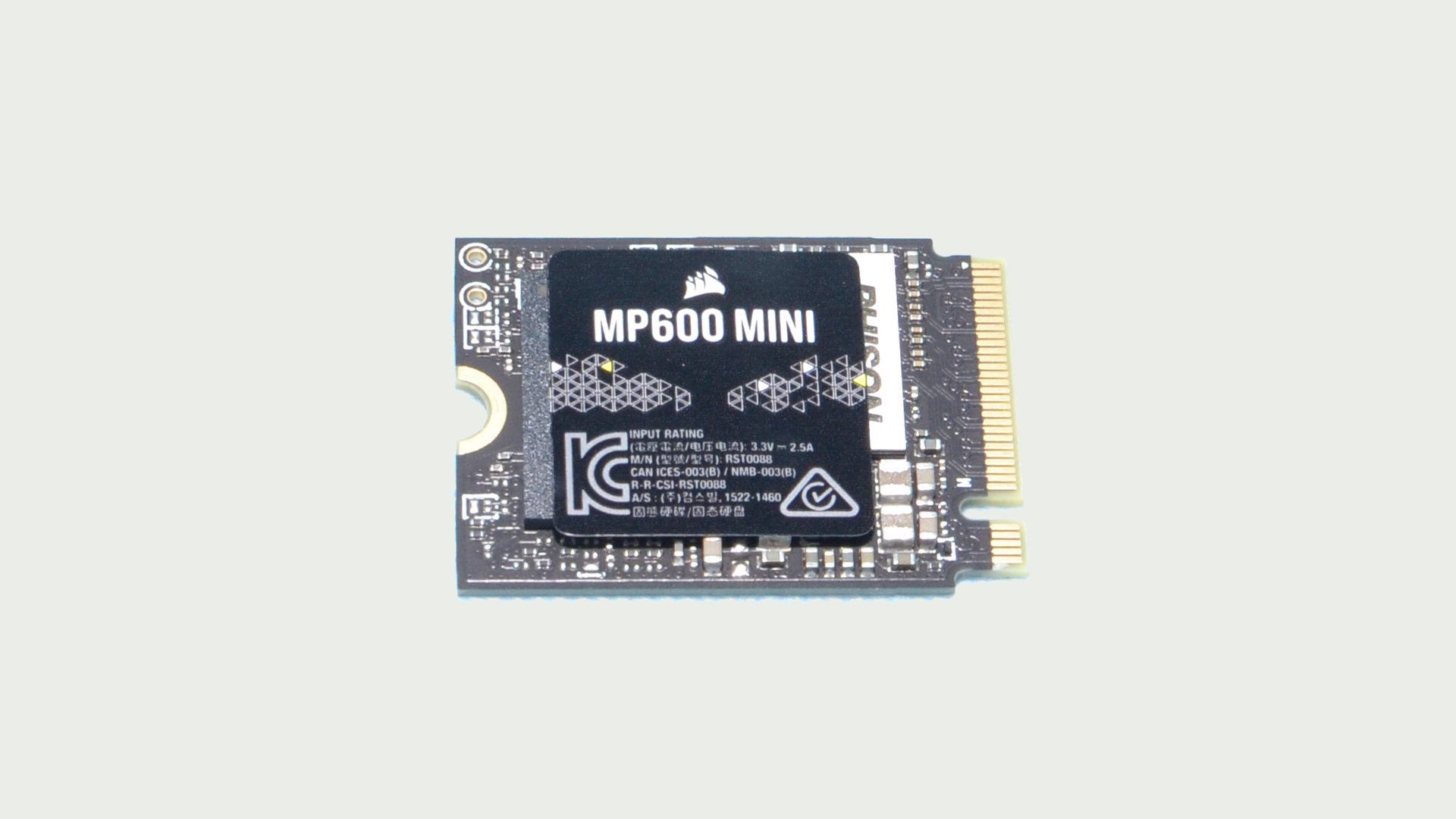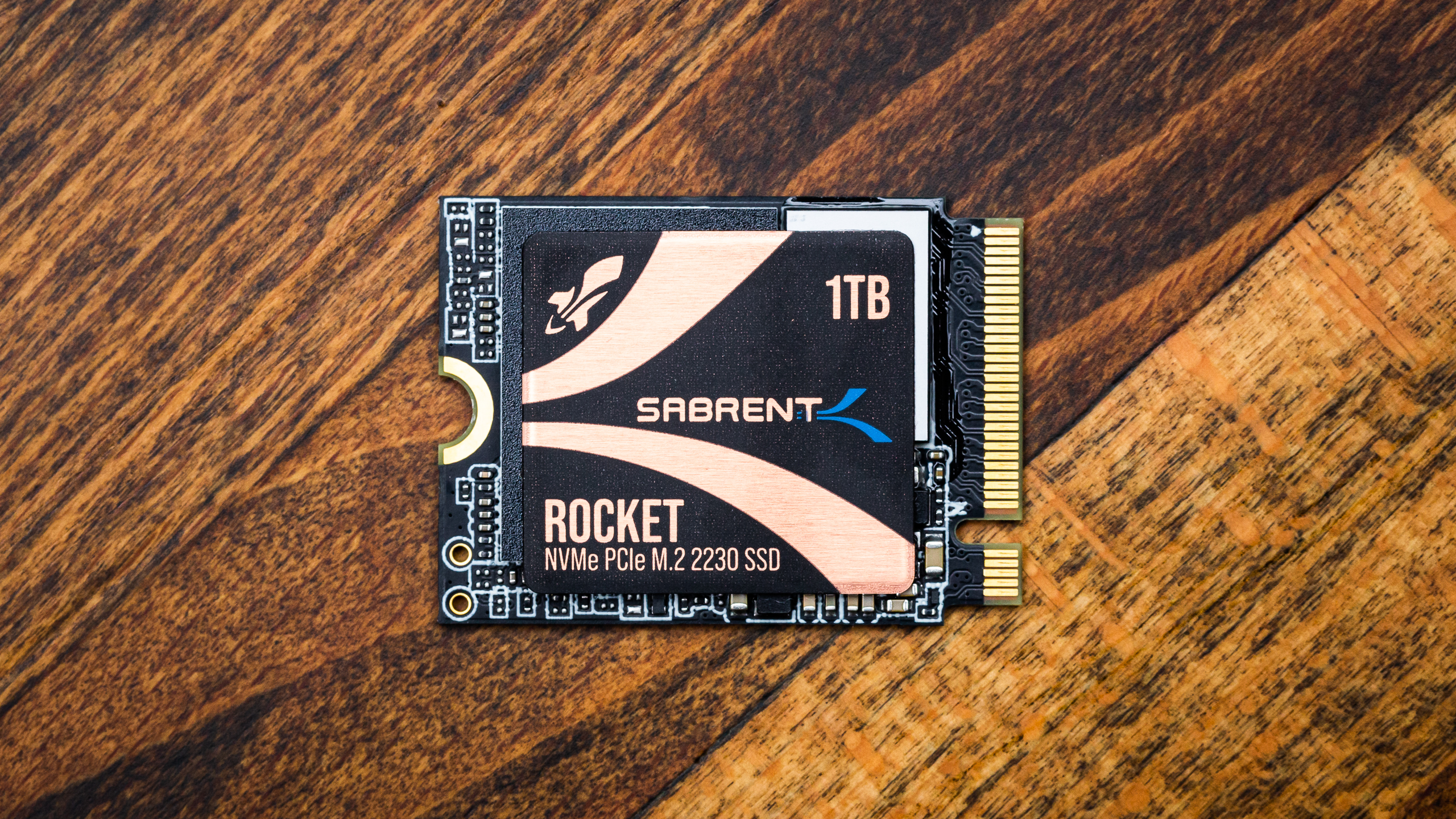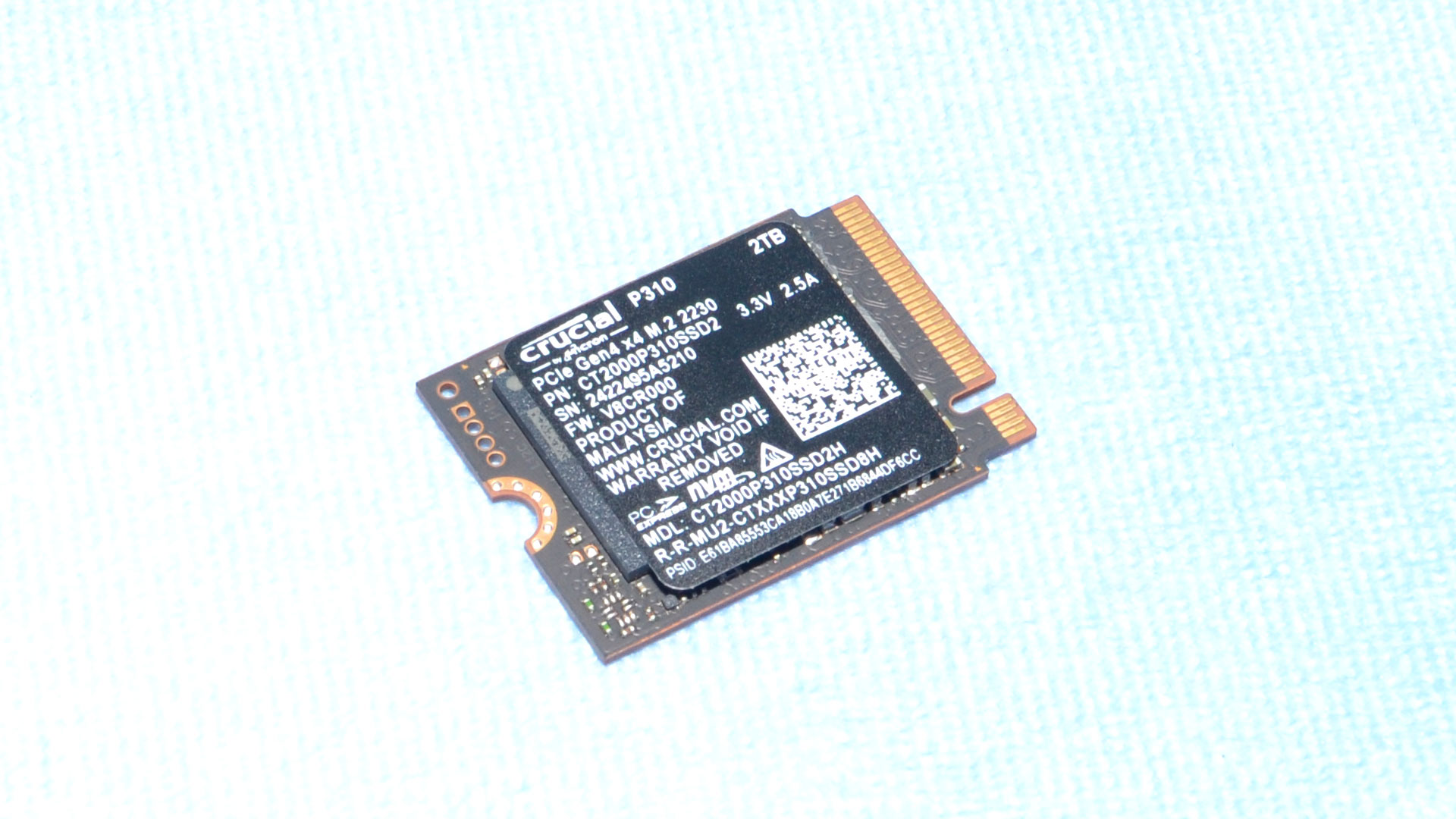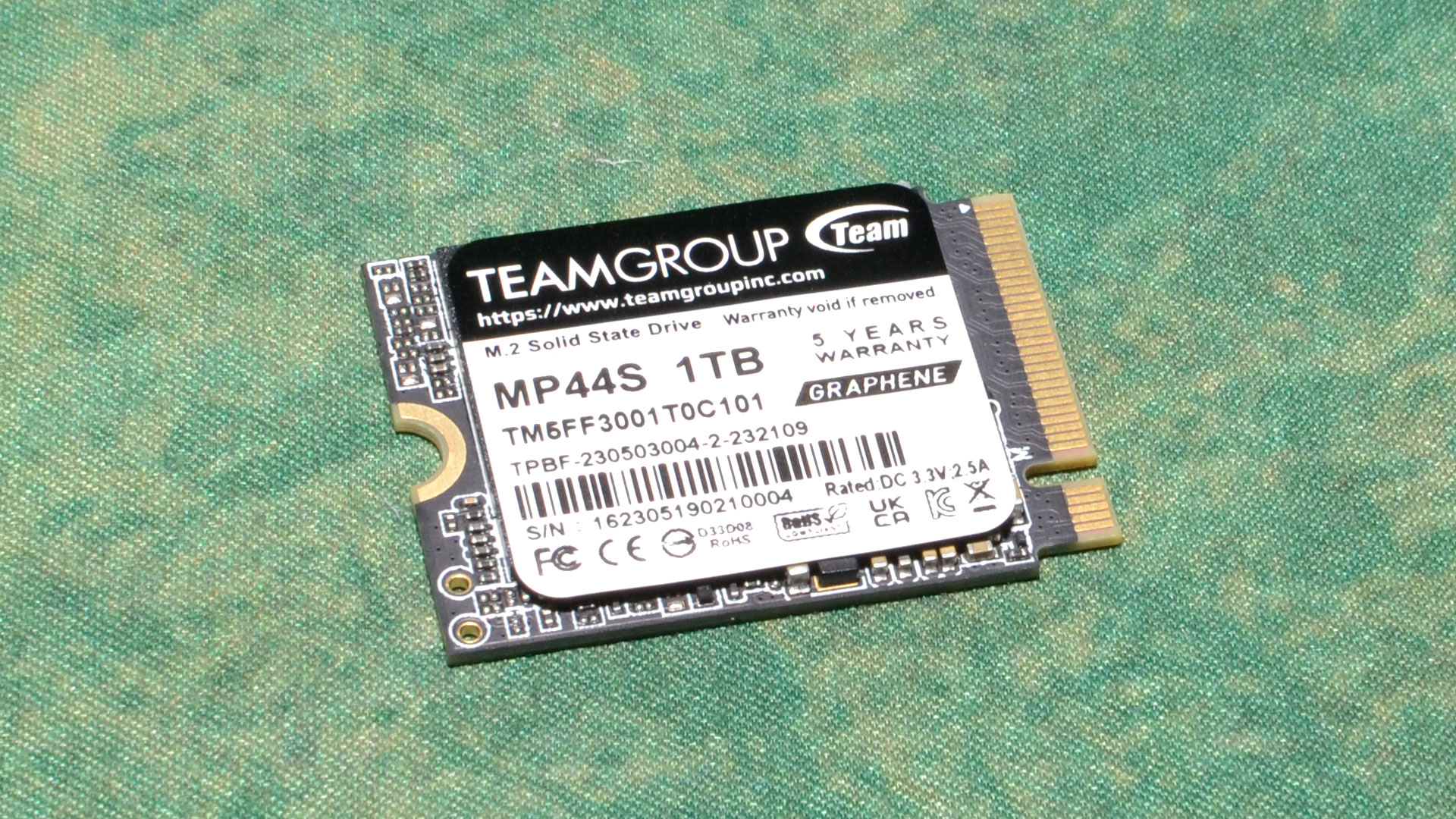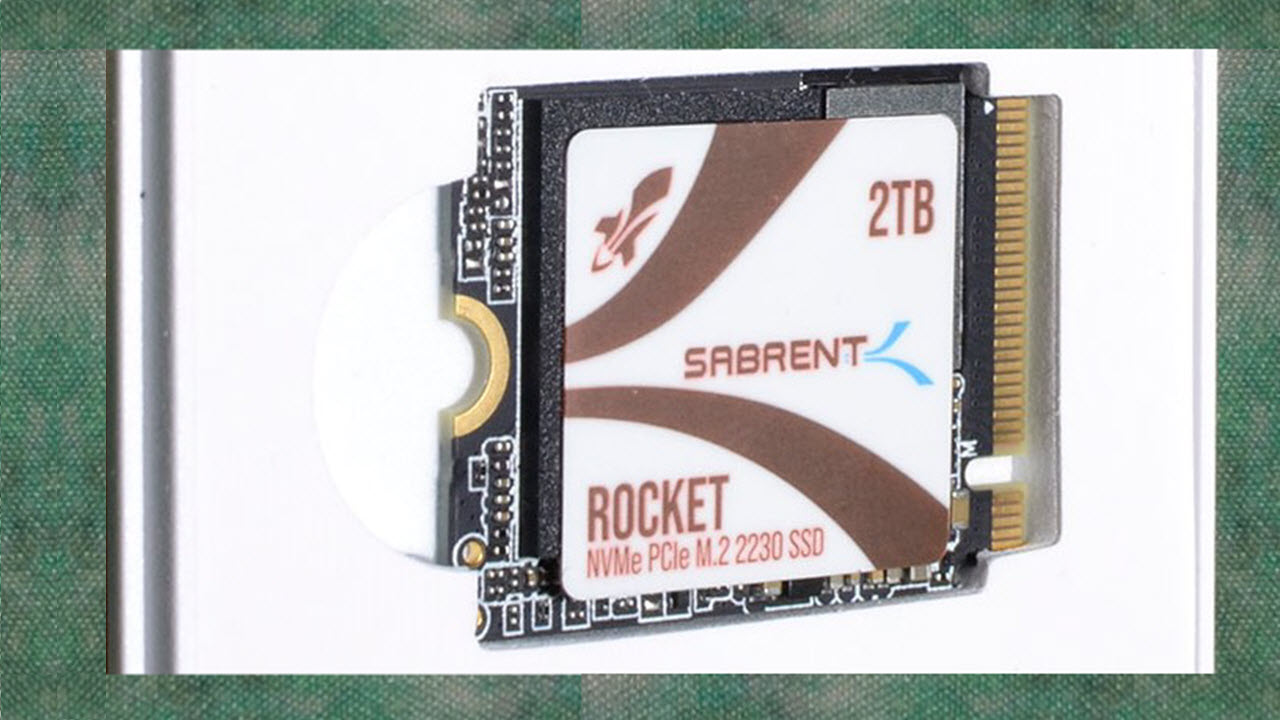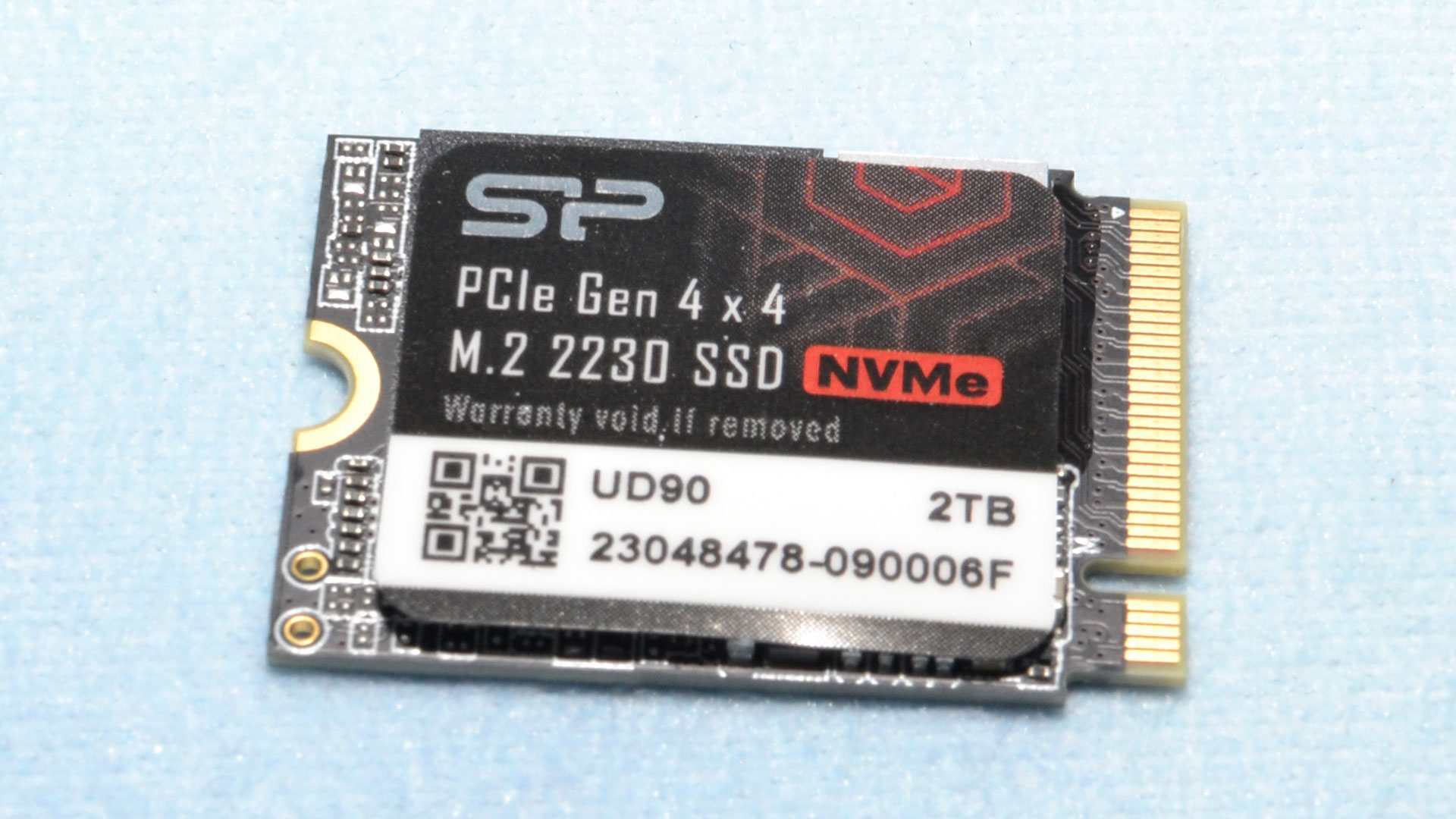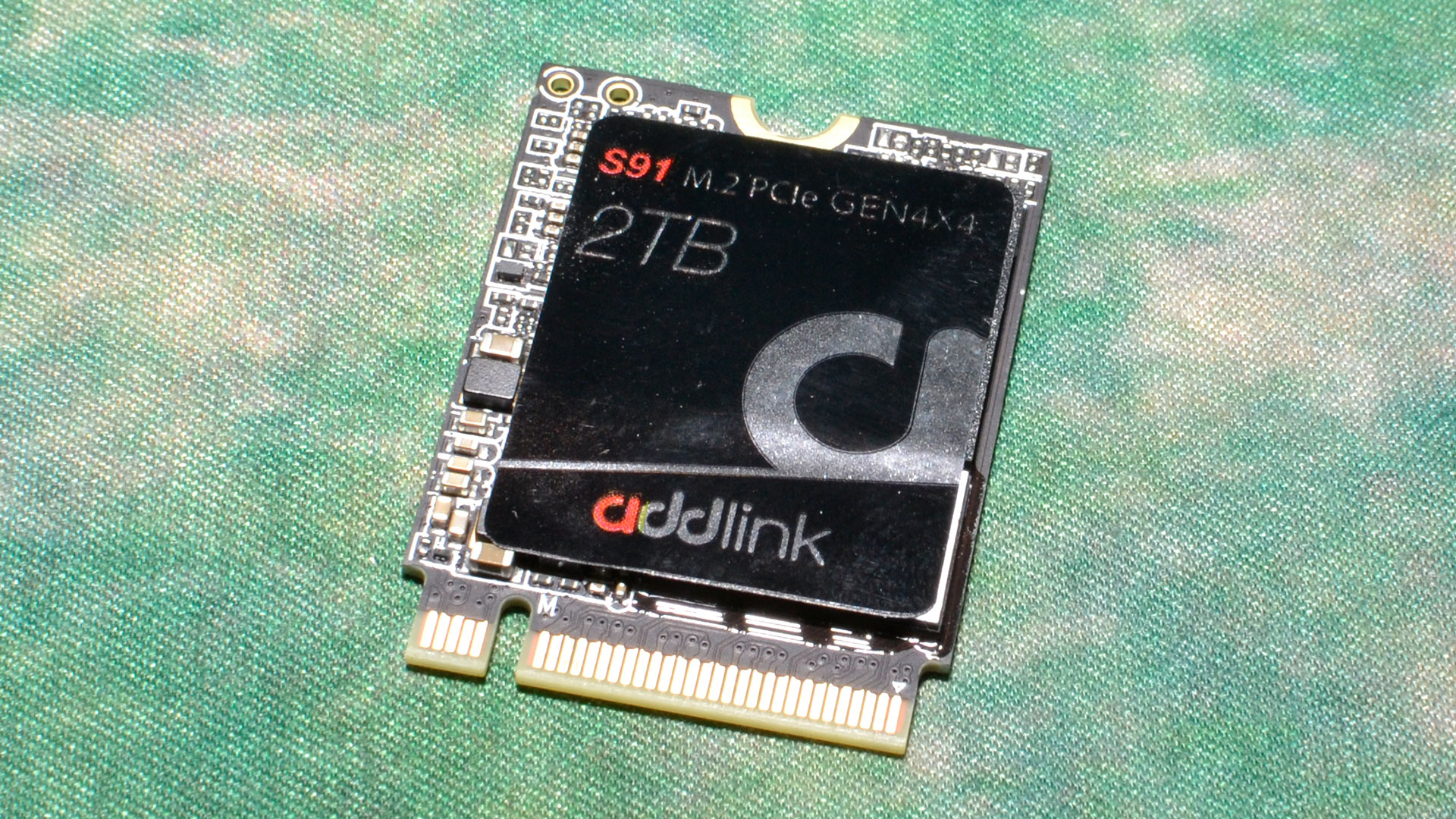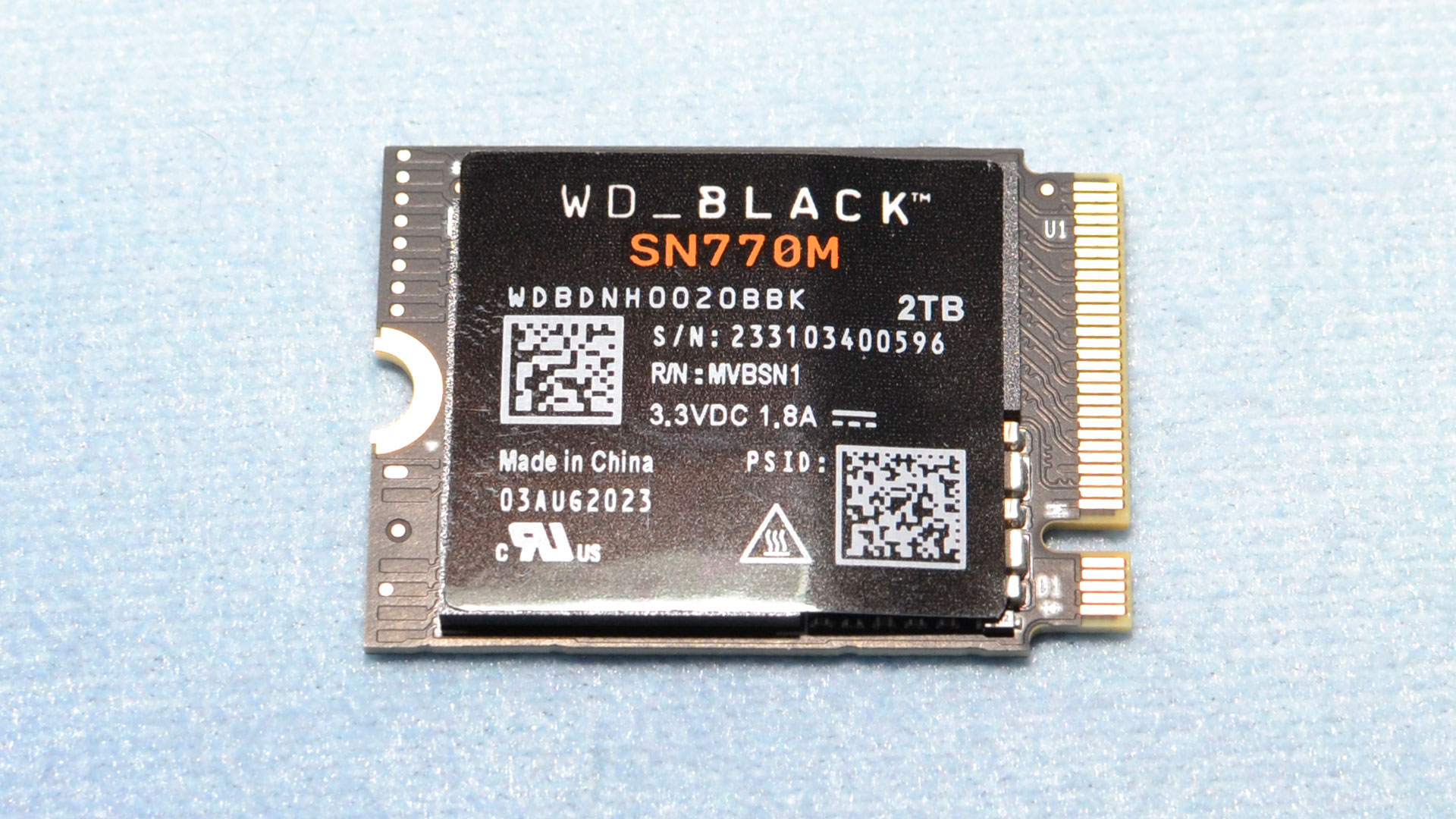The best SSD for the Steam Deck, Xbox ROG Ally, and Ally X in 2025: Fast NVMe drives for gaming on the go
Our tests show the best SSDs for games on the Steam Deck.
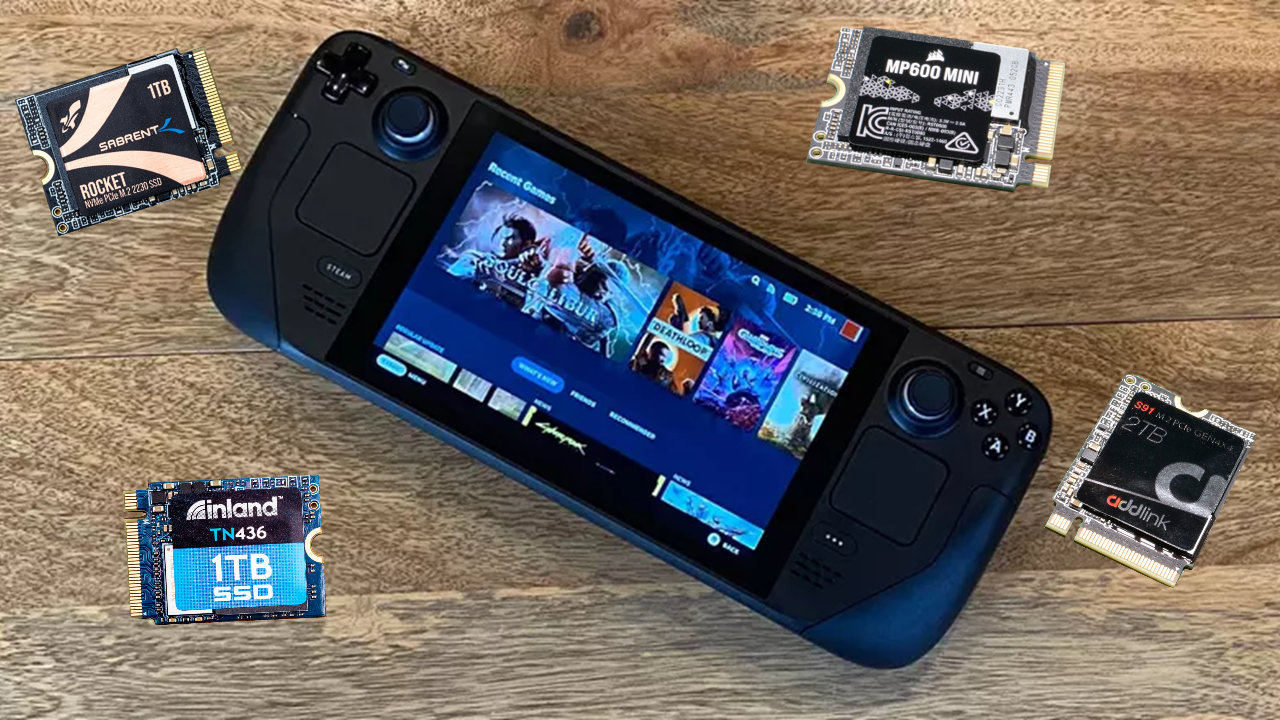
Our picks for the best Steam Deck and ROG Xbox Ally X SSDs for gaming in 2025 come from our benchmarks and data collected from a large selection of modern M.2 2230 drives. When shopping for the best Steam Deck ROG Xbox Ally X SSDs, you'll want to balance performance, capacity, and features against your budget. We've compiled a list of the best options below based on a variety of factors, but be sure to visit our in-depth SSD reviews for more details on each SSD, where we have additional testing under Windows along with plenty of analysis and benchmarking.
The Steam Deck was the first portable gaming PC on the market to be widely successful. The waitlist was massive, but eventually users got their hands on the holy grail. One big limitation, however, was the size of the internal storage, with a good number of units being sold with only 64GB of capacity. It’s not difficult to add additional storage by way of a microSD card and/or external storage, but upgrading the internal SSD represents the best way of having reliable, fast storage. The SSDs below will also make a good choice for use with other gaming handhelds, like the Asus ROG Ally, ROG Xbox Ally X, MSI Claw, Lenovo Legion Go, and other devices that utilize M.2 2230 drives.
Some users have experimented with modding and the use of larger M.2 2242 SSDs, cut-down SSDs, double-sided SSDs, and even ribbon cables to place M.2 2280 SSDs on the outside of the Steam Deck. However, the best and simplest option is to simply pick from the growing list of M.2 2230 SSDs that are fully compatible with the Steam Deck. You'll want a single-sided 2230 SSD as well, which allows for the EMI shielding to remain in place. This is critical so the drive does not interfere with the Steam Deck’s WiFi, and also, a single-sided drive maintains the intended cooling configuration of the device.
Steam Deck SSDs at a glance
Why you can trust Tom's Hardware
SSD | Performance | Battery Life | Temperature | Specifications |
|---|---|---|---|---|
271.4 | 333 | 59 | ||
268.1 | 353 | 62 | ||
267.9 | 316 | 58 | ||
262.4 | 316 | 55 | ||
260.3 | 333 | 61 | ||
260.3 | 316 | 57 | ||
259.6 | 333 | 66 | ||
259.2 | 316 | 59 | ||
258.5 | 333 | 56 | ||
257.1 | 300 | 60 | ||
255.6 | 316 | 59 | ||
253.3 | 300 | 54 | ||
252.0 | 316 | 59 | ||
231.5 | 316 | 61 | ||
229.1 | 316 | 65 | ||
43.1 | 316 | 35 | PCIe 2.0 x2, N/A, TLC |
We'll dig into the details of our best Steam Deck SSDs and Asus ROG Ally SSDs below. Although the Steam Deck only has a PCIe 3.0 M.2 slot, PCIe 4.0 drives work perfectly well and are in fact more efficient at lower speeds. Efficiency is paramount for portable devices like the Steam Deck as you want to produce as little heat as possible and at the same time improve battery life. Larger-capacity drives do peak at higher wattage, and some drives use older technology. For example, 28nm SSD controllers can negatively impact overall power draw. Gaming as a whole does not tend to pull too much power, thankfully, but Steam Decks are known to get quite hot.
Performance is a separate concern, and ideally you want a drive that offers a quick response time for game loading, often demonstrated by 4KB or smaller I/O benchmark results. Consistent performance as a drive fills is another concern, particularly when the drive is packed full of games. In most cases, there won't be a lot of variation in performance between any two NVMe drives in the Steam Deck, as it's limited by the interface speed, Wi-Fi download speeds, and even the CPU. Still, it’s best to get a higher performance model if the price is similar, though there’s no need to pay for more than you need.
Early Steam Deck SSD upgraders often had to resort to searching for drives on eBay, AliExpress, and other third party sites to secure a higher capacity SSD for their Deck. This can come with warranty concerns, and further, the specifications for many drives remain uncertain. However, a plethora of retail drives with newer hardware and explicit specifications now exists, making the experience of upgrading a lot easier.
As we only began our Steam Deck SSD testing in mid-2023, we don't have results for many older drives. In fact, nearly all of the drives we've tested are PCIe 4.0 compliant and should run faster if used in newer handhelds like the Asus Ally. Most of the drives we've tested remain available for retail purchase, which is also a plus. We’re here to highlight the best options currently available, tailored around particular priorities.
Note that there are a lot of 2230 drives use the Phison E21T controller, with either Micron 176-layer TLC (1TB) or QLC (2TB) NAND. A couple of newer drives have now arrived using the Phison E27T controller, one with TLC and one with QLC NAND. As nearly all of the drives we've tested feel similarly performant in the Steam Deck, a major factor will inevitably come down to pricing, availability, and support.
Best Steam Deck SSDs You Can Buy Today
Specifications
Reasons to buy
Reasons to avoid
Corsair’s original MP600 Mini was one of the best all-around drives for the Steam Deck and other M.2 2230 devices, even if it had some limitations. It was only available at 1TB and it did not stand out from other excellent TLC-based drives, like Sabrent’s Rocket 2230 and Inland’s TN446. Corsair has remedied that with newer, faster hardware, and eventually a 2TB model to finally supplant the WD Black SN770M — or OEM WD SN740 — as the fastest 2TB 2230 drive around.
Previously, it was only possible to get 2TB with QLC flash, which has drawbacks such as weaker performance, or with WD’s less power-efficient and hotter drives. With TLC flash at 1TB, performance is generally limited to about 5 GB/s due to the use of an older controller. Now, this second revision of the MP600 Mini that uses the Phison E27T controller means you won't have to make any compromises for capacity, performance, or efficiency.
The only question marks are cost and availability for this new hardware. We tested the 1TB model and hope to get our hands on the 2TB variant now that it's beginning to ship. It's also unfortunate that Corsair used the same name (the "(E27T)" isn't part of the nomenclature) as it's existing E21T-based drive, so pay careful attention to which drive you're ordering.
MORE: Corsair MP600 Mini 1TB (E27T) SSD Review
Specifications
Reasons to buy
Reasons to avoid
The Sabrent Rocket 2230 remains a popular choice for a Steam Deck SSD upgrade. It uses TLC on an efficient platform and, unlike the MP600 Mini, has a range of capacity options. If you happen to have the 64GB Steam Deck, the 256GB and 512GB options can be a way to save a little coin — though we'd still recommend saving up for a 1TB or 2TB drive.
Since the Rocket 2230 launched in early 2023, a number of competing products have come to market that make it less compelling at the current price. Still, it’s a known solid performer, and was our best-reviewed M.2 2230 SSD for quite some time. It has the same Phison E21T controller and Micron 176-layer TLC NAND as many other 1TB drives.
MORE: Sabrent Rocket 2230 SSD review
Specifications
Reasons to buy
Reasons to avoid
The Crucial P310 SSD represents the latest iteration of hardware to come to the M.2 2230 form factor. Leveraging Phison's latest E27T controller paired with Micron 232-layer QLC NAND, it delivers excellent efficiency and performance that's more than fast enough for your Steam Deck. It's the first drive with this combination of hardware, but it most certainly won't be the last and we expect other companies will release similar SSDs in the coming months.
QLC NAND has traditionally been quite slow, though it can vary by NAND type. Many will fall to under 100 MB/s of sustained write performance under stress testing, where the pSLC cache gets filled up and writes have to go directly to QLC NAND. The latest Micron QLC NAND manages around 330 MB/s, triple the speed of Micron's older 176-layer QLC NAND.
The biggest concern with the Crucial P310 right now is pricing and availability. We were given MSRPs of $114 and $214 for the 1TB and 2TB drives, but Crucial has them listed on its own store at $171 for 1TB and $264 for 2TB. That's significantly more than competing drives and we expect prices to correct over the coming weeks — at the very least, the P310 should cost less than the Corsair MP600 Mini (E27T) listed above.
MORE: Crucial P310 2TB review
Specifications
Reasons to buy
Reasons to avoid
The Teamgroup MP44S arrived after the Rocket Q4 2230 but has essentially the same makeup. Team’s drives tend to be hit or miss, but this drive is a winner if it’s priced right — and right now it's by far the least expensive 2TB 2230 drive on Amazon. It does use QLC flash, which has lower endurance and performance than TLC, but you can get 2TB of space in a tiny drive as a result. The MP44S has the advantage of having a 1TB option out of the gate, even if it is late to the party, for added flexibility. (We tested the 1TB model, but the 2TB drive should perform similarly.)
In our testing, the fewer dies present at 1TB did not negatively impact performance. The drive is also quite efficient, which is perfect for the Steam Deck. It also costs less than the TLC alternatives, making it a real contender at 1TB, although you have to judge for yourself whether or not the cost savings are worthwhile. The performance gap is not large with the Steam Deck but could be more significant with the Ally.
MORE: Teamgroup MP44S SSD review
Specifications
Reasons to buy
Reasons to avoid
Sabrent’s Rocket 2230 made waves at the beginning of 2023 as a mass-produced, retail storage solution for the Steam Deck. It provided an easy update to 1TB from the stock Steam Deck SSDs. However, users were clamoring for more storage, and that led to the release of the Rocket Q4 2230. Now it’s possible to toss in up to 2TB of internal storage for the Steam Deck without having to go to eBay or AliExpress. Still missing is the 1TB SKU, but this can be filled by the Team MP44S or Addlink S91.
The Rocket Q4 2230 is not perfect, however, as it does have plenty of competition and it only reaches 2TB through the use of QLC rather than TLC. It's also one of the more expensive 2TB M.2 2230 drives now available. In general this is not a huge problem as the Steam Deck does not require fast storage, particularly as its M.2 slot is limited to PCIe 3.0 speeds. It’s better to have an efficient drive, which includes the Rocket Q4 2230, to help with heat and the Steam Deck’s battery life. Peak and sustained performance can suffer with QLC flash, but this wasn’t an issue in our Steam Deck tests.
MORE: Sabrent Rocket Q4 2230 SSD review
Specifications
Reasons to buy
Reasons to avoid
The Silicon Power UD90 2230 is a shorter version of the company’s M.2 2280 UD90 with a swap to QLC flash from faster TLC. Both drives are capable of working with a PCIe 4.0 interface, but the Deck uses PCIe 3.0 for its M.2 slot. This is good news for the UD90 2230, as while its PCIe 4.0 performance is lackluster, especially by today’s standards, its PCIe 3.0 performance is more than adequate for gaming with the Deck. The drive should be quite efficient in this mode as well, so there is no need to worry about its impact on battery life or any extra heat generation. It’s a good pick if you’re on a budget and don’t need anything fancy.
If the UD90 2230 has a downside, it’s that the promised 500GB SKU is impossible to find. This isn’t surprising, given that the drive uses QLC flash, which requires more capacity to scale effectively. This also isn’t a big deal because most people won’t be upgrading to 500GB. However, if you are in the situation where you need the smaller capacity, we’d recommend the 500GB M.2 2230 version of the Kingston NV3 instead.
MORE: Silicon Power UD90 2230 review
Specifications
Reasons to buy
Reasons to avoid
Addlink is a lesser-known brand, but we have reviewed SSDs from this manufacturer with positive results. Its products are positioned as budget alternatives to better-known brands, and this makes the S91 a potential sleeper. It uses the same Micron 176-layer QLC NAND to reach 2TB of capacity, but it's also available in lower capacities, which offers purchase flexibility. At 2TB, it’s similar to the other Phison E21T QLC drives we've tested, like the Rocket Q4 2230 or Teamgroup MP44S, and may be less expensive.
At 512GB, the S91 uses TLC and it may be a good alternative to the TN446 with its potentially wider availability. Still, the TN446 has the better warranty and guaranteed hardware. Addlink is trying to cover all the bases with the S91 and the prices are good across-the-board, so it's worth a look if your first choice is unavailable or you want to save some money.
MORE: Addlink S91 SSD review
Specifications
Reasons to buy
Reasons to avoid
The WD Black SN770M brings the best performance possible to the M.2 2230 form factor. It accomplishes this with a fast controller, the polished firmware that made the Black SN770 a fan favorite, and its mature BiCS5 NAND flash. This TLC can come in dense, 1Tb dies, which scales up to 2TB of flash in a single package. This is particularly relevant for the small 2230 form factor, where space is at a premium, especially as many devices require a single-sided drive.
The SN770M is not only a shorter version of the SN770 but also a retail version of the WD SN740 — a popular OEM drive for the Deck that performs just as well, though you'll generally need to find it on eBay or AliExpress. A retail warranty with full WD support is a welcome bonus. Unfortunately, this drive pays a price for its capacity and performance. It’s the least-efficient PCIe 4.0 2230 SSD we’ve tested, including in PCIe 3.0 mode, and outputs considerable heat when tested with Windows in a desktop environment.
The good news is that it doesn't seem to have any such issues in the Deck. It didn't get too hot and battery life was in line with the other drives. Other drives may be better options for laptops, using QLC at 2TB for capacity, and TLC at 1TB and below for better performance. But if you want 2TB of TLC in a 2230 form factor? Right now the SN770M is the sole retail choice.
MORE: WD Black SN770M SSD review

Specifications
Reasons to buy
Reasons to avoid
We reviewed the original Kingston NV3 in 2024 with a follow-up the next year for the M.2 2230 form factor version. Kingston’s NV series of drives is known for its low pricing and high availability, which makes the NV3 a great “backup” choice in an increasingly challenging market. The upside is that the NV3 is available in a range of capacities – still limited to 2TB at the moment, but 2 2Tb dies are on the way, with the possibility of more – with good power efficiency, performance, and pricing.
The downside is that Kingston tends to use whatever hardware is available in its lower-end drives. The NV3 we tested has QLC flash, although some of the best QLC around, with a reasonably good controller. One reason the NV3 is rated for lower speeds, though, is that it allows for a wider range of hardware swaps. This might be okay if you’re trying to get a drive on a budget. The NV3 is a good 2nd or 3rd choice if none of our other category choices are available or on sale at the time of your purchase. It’ll be equal to or better than previous generations of M.2 2230 drives.
Read: Kingston NV3 2230 2TB SSD review
How we tested Steam Deck SSDs
M.2 2230 SSD reviews:
Addlink S91 2TB
Corsair MP600 Core Mini 2TB
Corsair MP600 Mini 1TB
Corsair MP600 Mini E27T 1TB
Crucial P310 2TB
Inland QN446 2TB
Inland TN436 1TB
Inland TN446 1TB
Lexar Play 1TB
Sabrent Rocket 4 1TB
Sabrent Rocket Q4 2TB
Silicon Power UD90 2TB
Teamgroup MP44S 1TB
Valve 64GB eMMC (not reviewed)
WD Black SN770M 2TB
WD SN740 2TB
We started with our standard test suite, but ran it in both PCIe 3.0 and 4.0 modes because the Steam Deck uses the PCIe 3.0 interface. PCIe 3.0 testing helps gauge performance on older systems or even Windows on the Steam Deck, while PCIe 4.0 testing lets the drives open up to their full potential and may reflect performance on the ASUS ROG Ally.
Besides Windows benchmarks, however, we also wanted to get a feel for real world performance on the Steam Deck in its native SteamOS mode. We swapped out the stock 64GB Foresee eMMC drive and commenced testing each SSD. See our Upgrading and testing the Steam Deck's SSD article for more details.
We've separated our Steam Deck testing into two categories: general Steam Deck and SteamOS operations, and KDiskMark synthetic testing. The former includes re-imaging the Deck (from a Samsung T7 Touch 1TB portable SSD), the initial SteamOS setup process, upgrading SteamOS to the latest version, booting SteamOs, then installing and launching the game Hollow Knight. We also have battery life estimates, where we drain the battery from a fully charged 100% for one hour while running Hollow Knight, then check the percentage remaining to arrive at the final estimate.
KDiskMark represents a Linux-based CrystalDiskMark analogue, and we log temperatures of the drive while running the KDiskMark default test suite three times. Together with our standard test results, this makes it possible to determine which M.2 2230 SSDs make the best Steam Drive SSDs.
Here are the test results, which are current as of July 17, 2024. 2TB drives are in blue while 1TB drives are in gray. We've also included the base model 64GB eMMC in black drive as a point of reference.
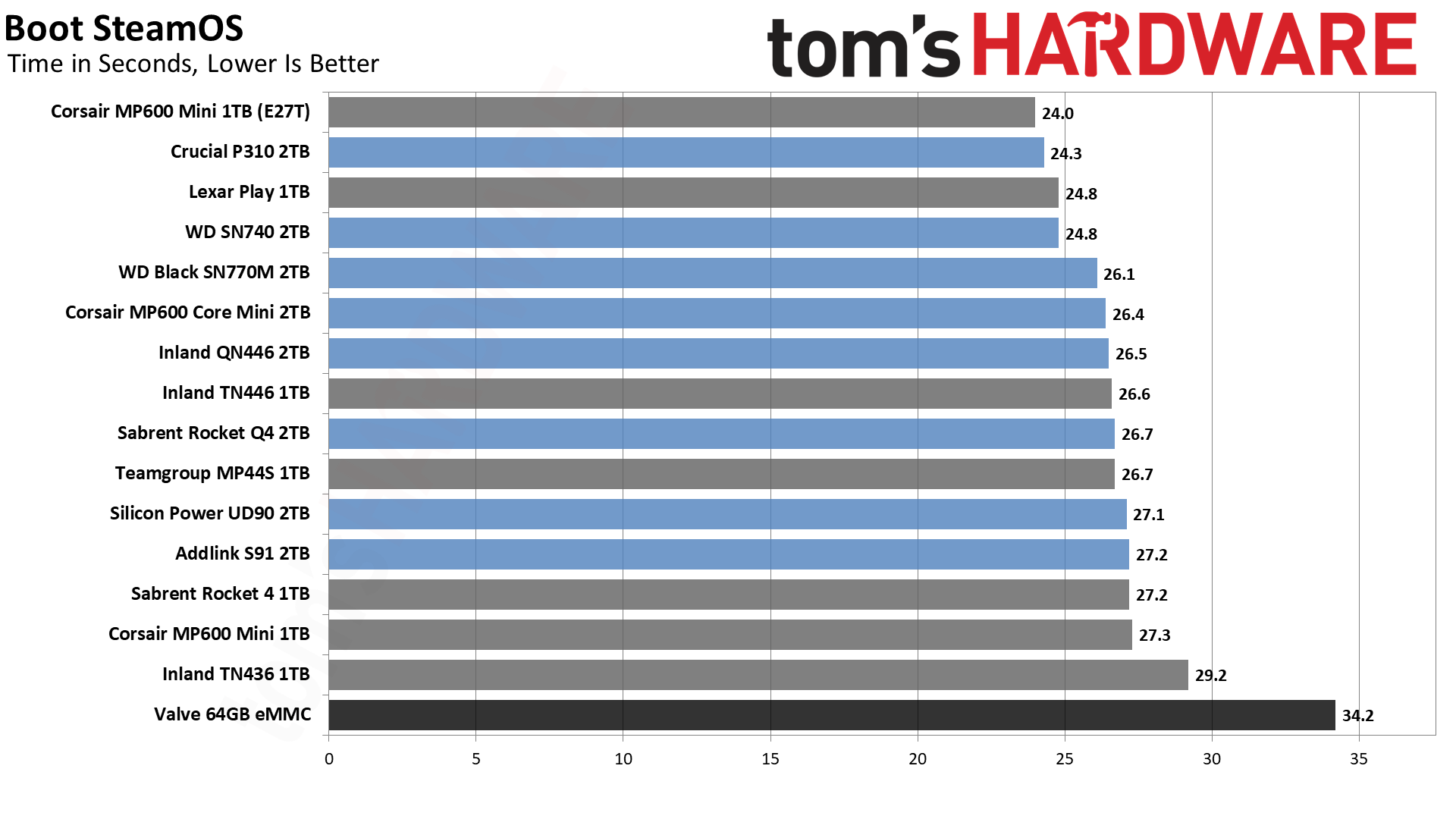
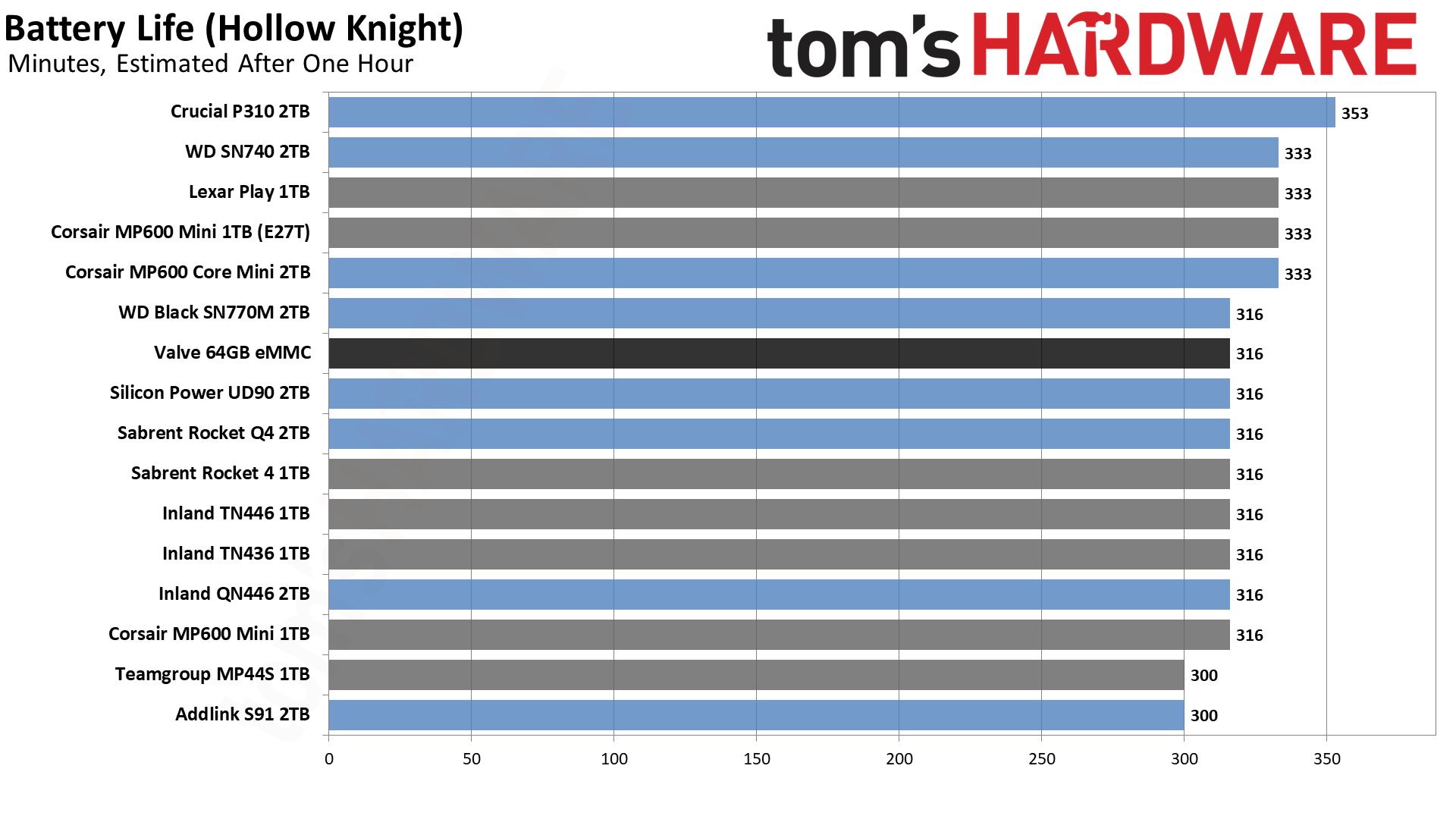
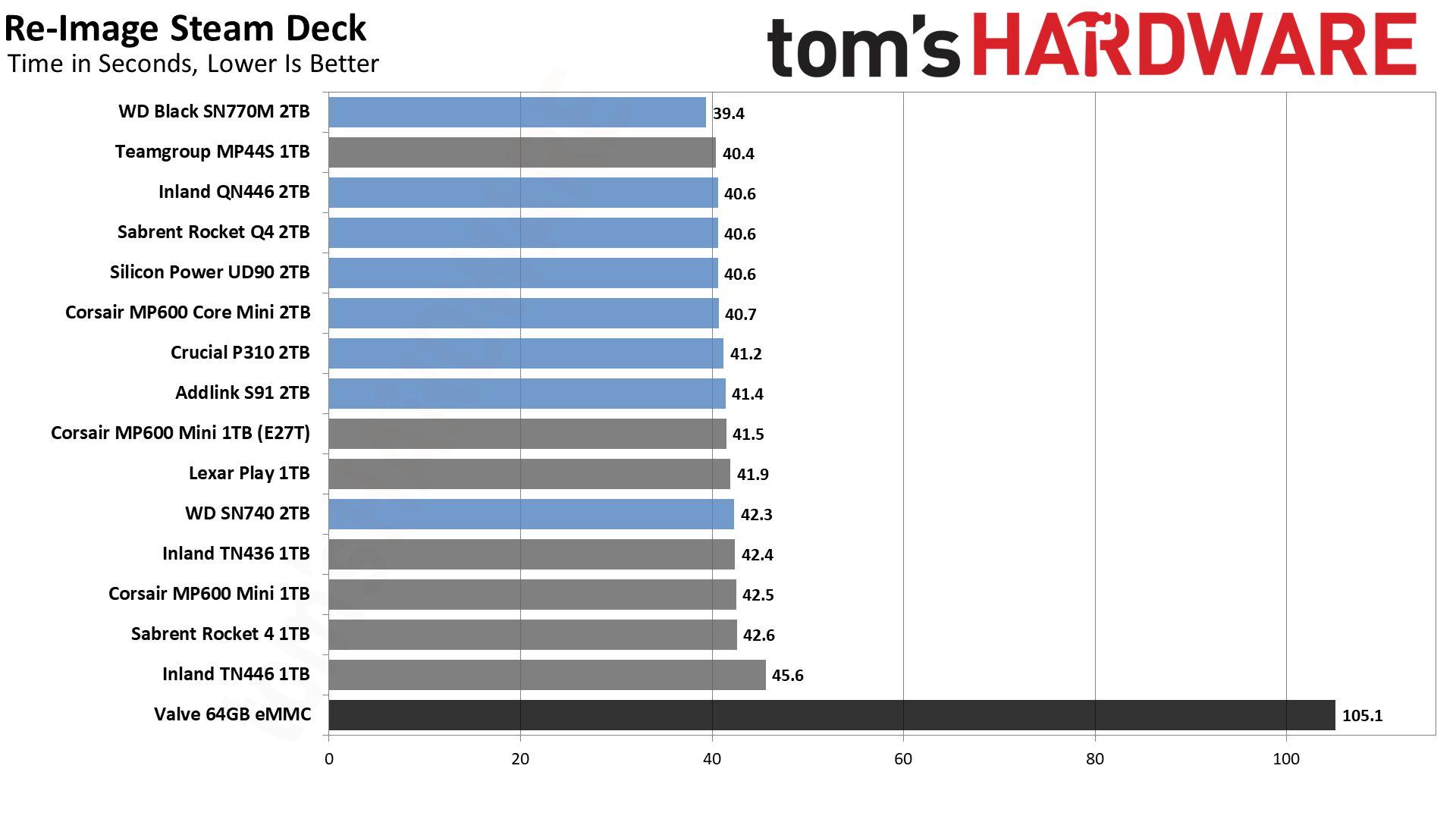
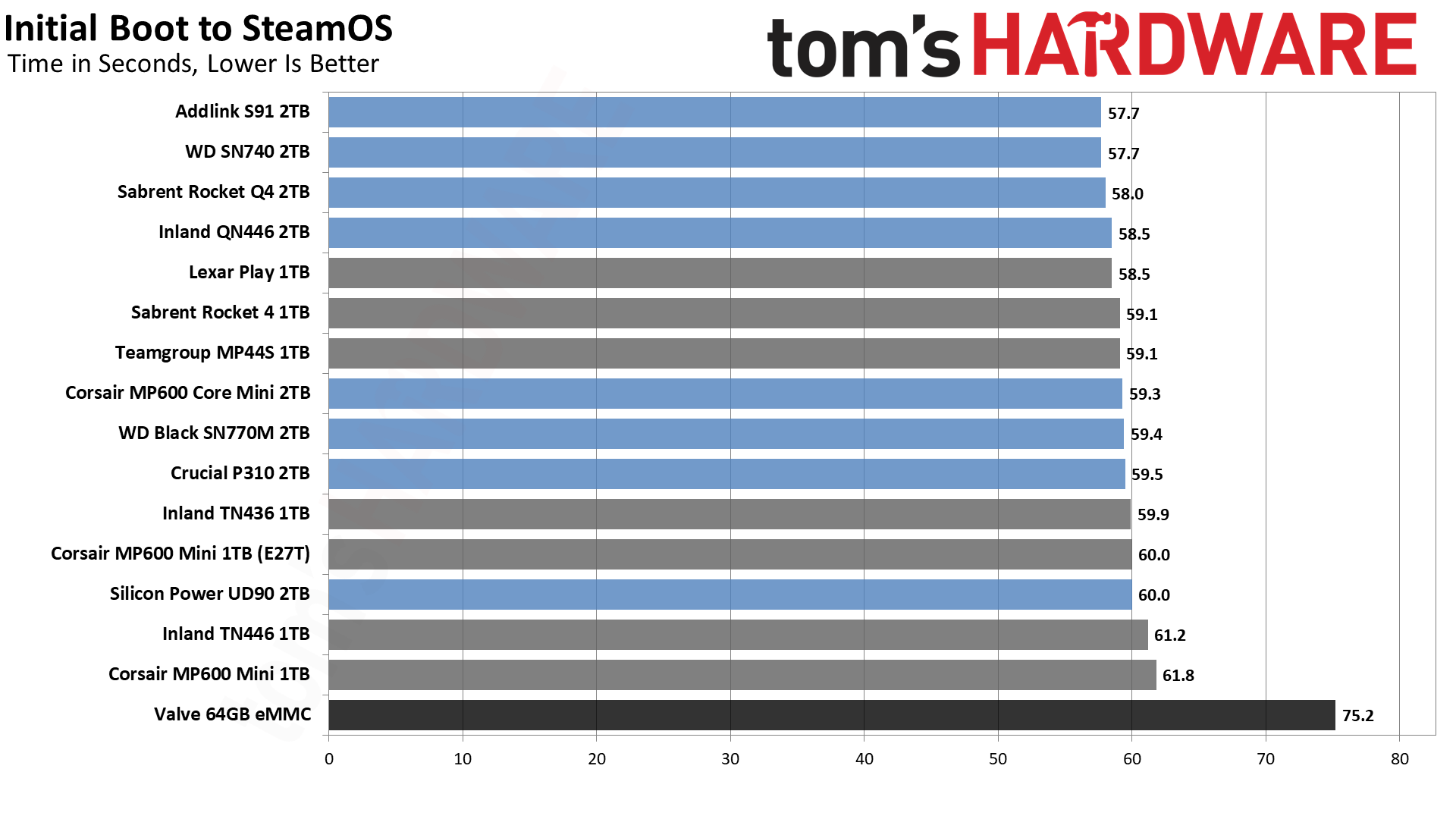
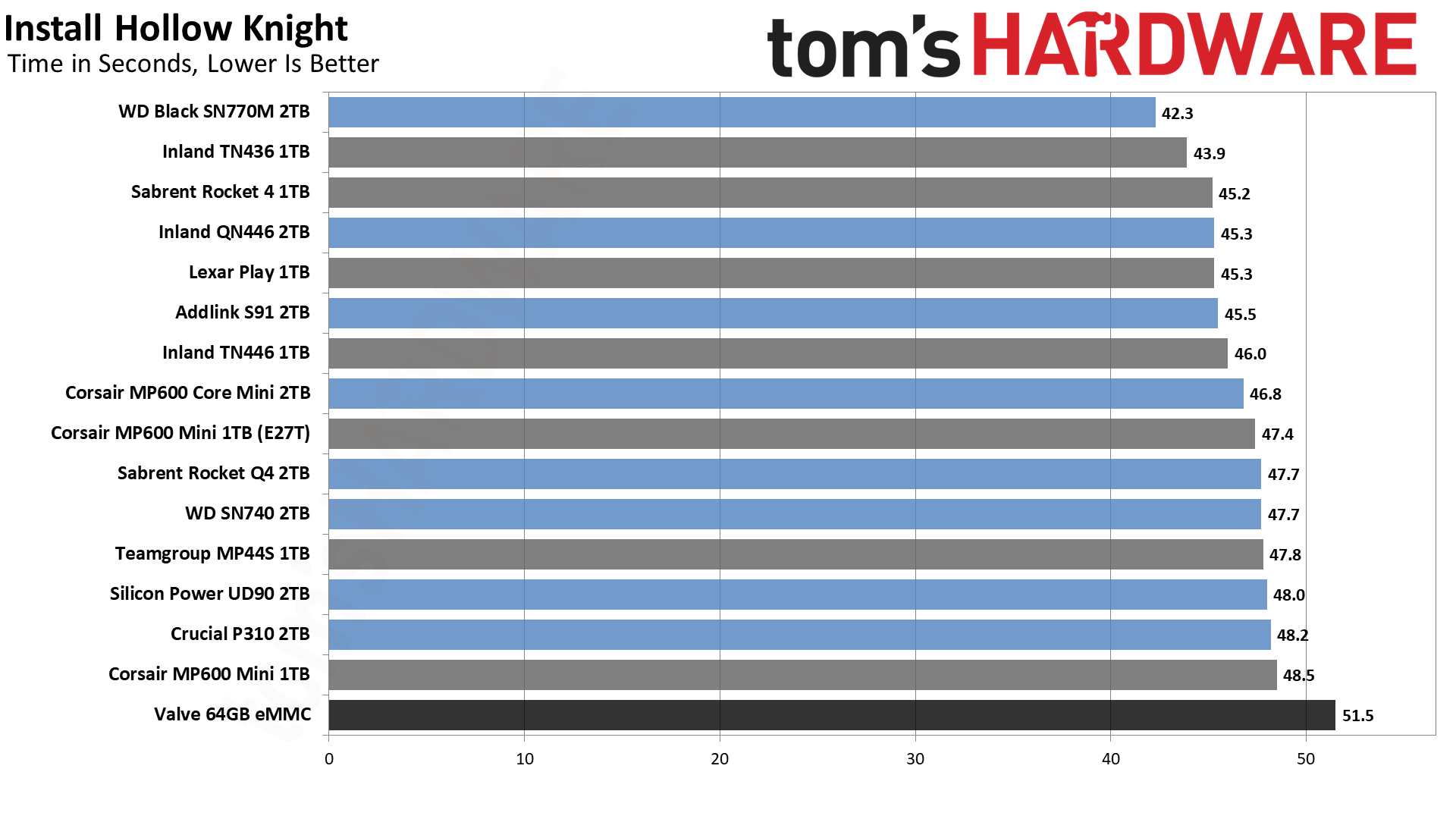
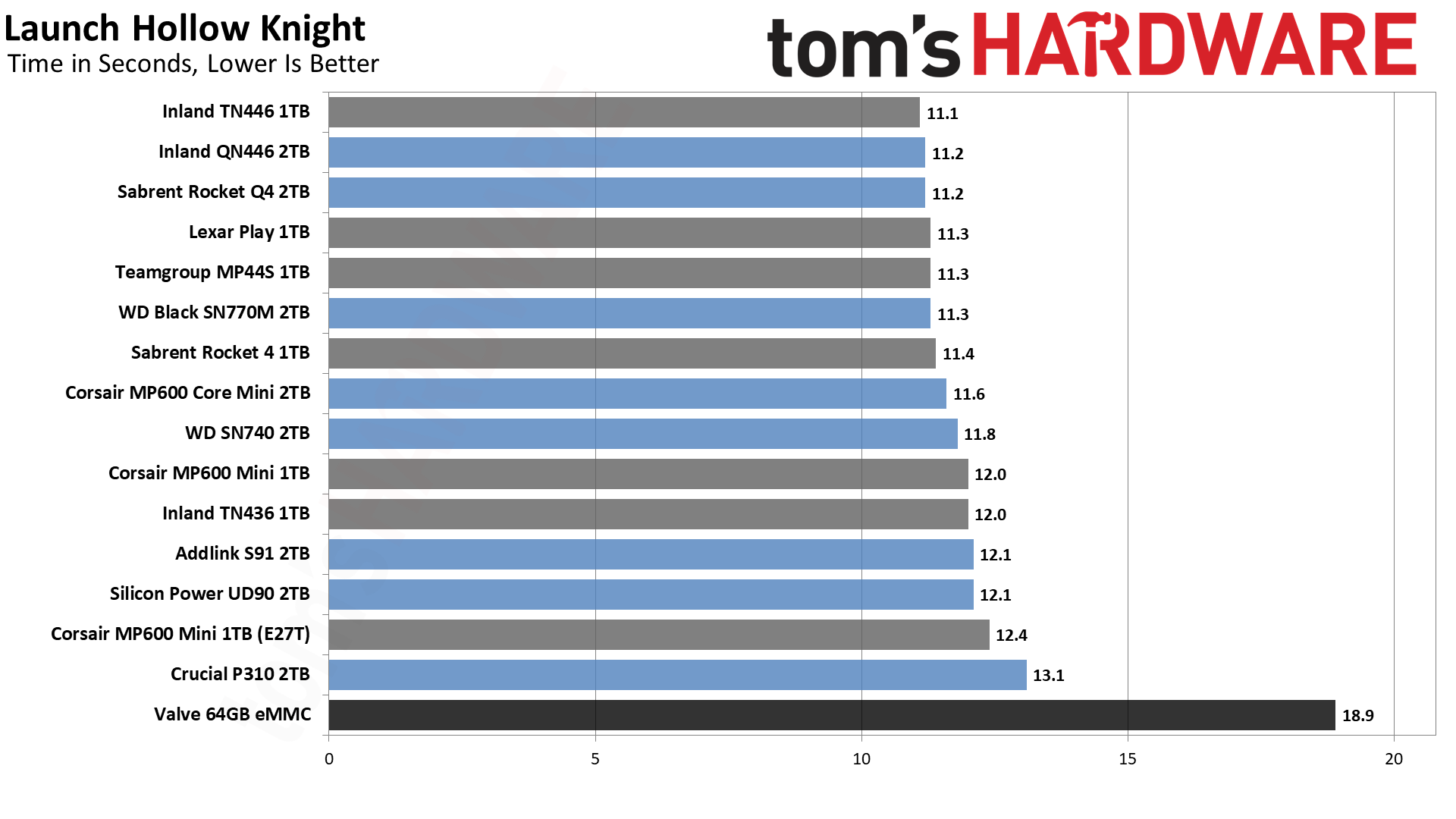
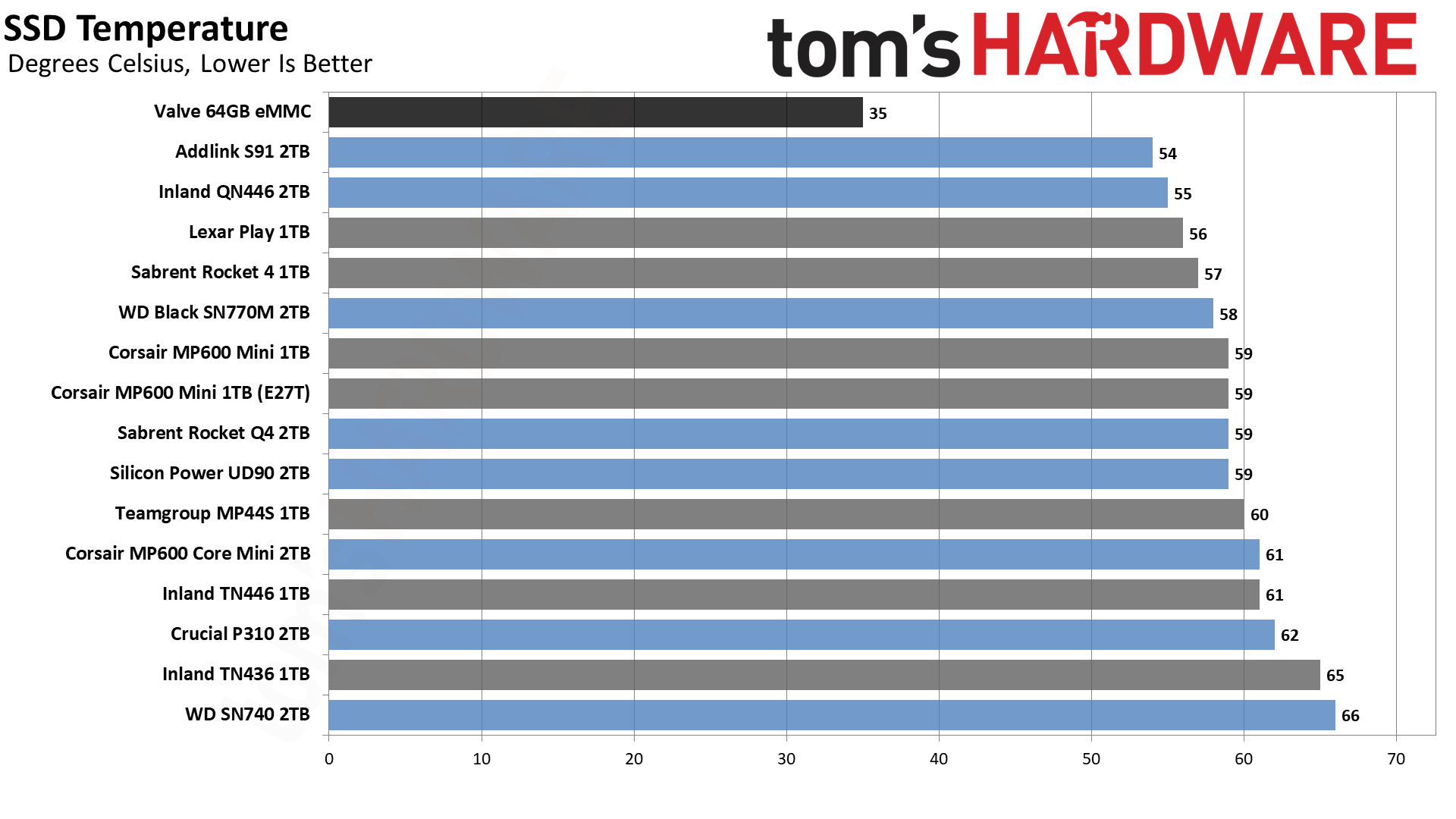
Most of the 2TB drives that we've tested use QLC NAND, which can impact performance more as a drive fills up. However, the Steam Deck wireless connectivity generally represents more of a bottleneck in practice, and while we saw peak download speeds of around 80 MB/s, average download speeds can often fall below 50 MB/s. Needless to say, even slower SSDs with QLC NAND can generally keep up with such data rates.
The launch timing results are more indicative of performance than the game installation results, for the above reason. Even with the Steam Deck in approximately the same location and position, we have measured relatively large fluctuations in download speed and installation time — and that's for a relatively small game, Hollow Knight. Of course, you can't install a lot of larger games on the base 64GB drive, which is why we opted to use Hollow Knight. We uninstall and reinstall the game multiple times to ensure consistency of our results, but there's still some variability.
Our testing has occurred over a period of many months, which also means some of the more recent drives were tested with newer SteamOS updates. We cannot rule out some performance optimizations from that vector, so for example the Lexar Play 1TB, WD SN740 2TB, Corsair MP600 Mini E27T, and Crucial P310 are the latest additions to our testing and tend to boot SteamOS faster than previously tested drives. At the same time, the Crucial P310 now has Proton 3.0 support which seems to have increased the launch time. (We'll need to see about retesting all SSDs with the latest SteamOS image in the coming days.)
Outside of the 64GB eMMC drive, the performance results are mostly close enough that few people would notice a major difference in performance while using the Steam Deck. We have Windows testing for all of the drives in their respective reviews, so check those for additional insights into how the various models perform outside of the Deck.
Battery life ends up being mostly a non-factor. All of the SSDs had between 80% and 83% battery life remaining after one hour of testing. There's at least a 1% margin of error in that reading, and again SteamOS updates could be impacting some of the latest results. As it stands, we have one drive, not coincidentally the latest SSD we've tested, that managed 353 minutes. The remaining SSDs are grouped at either 333, 316, or 300 minutes.
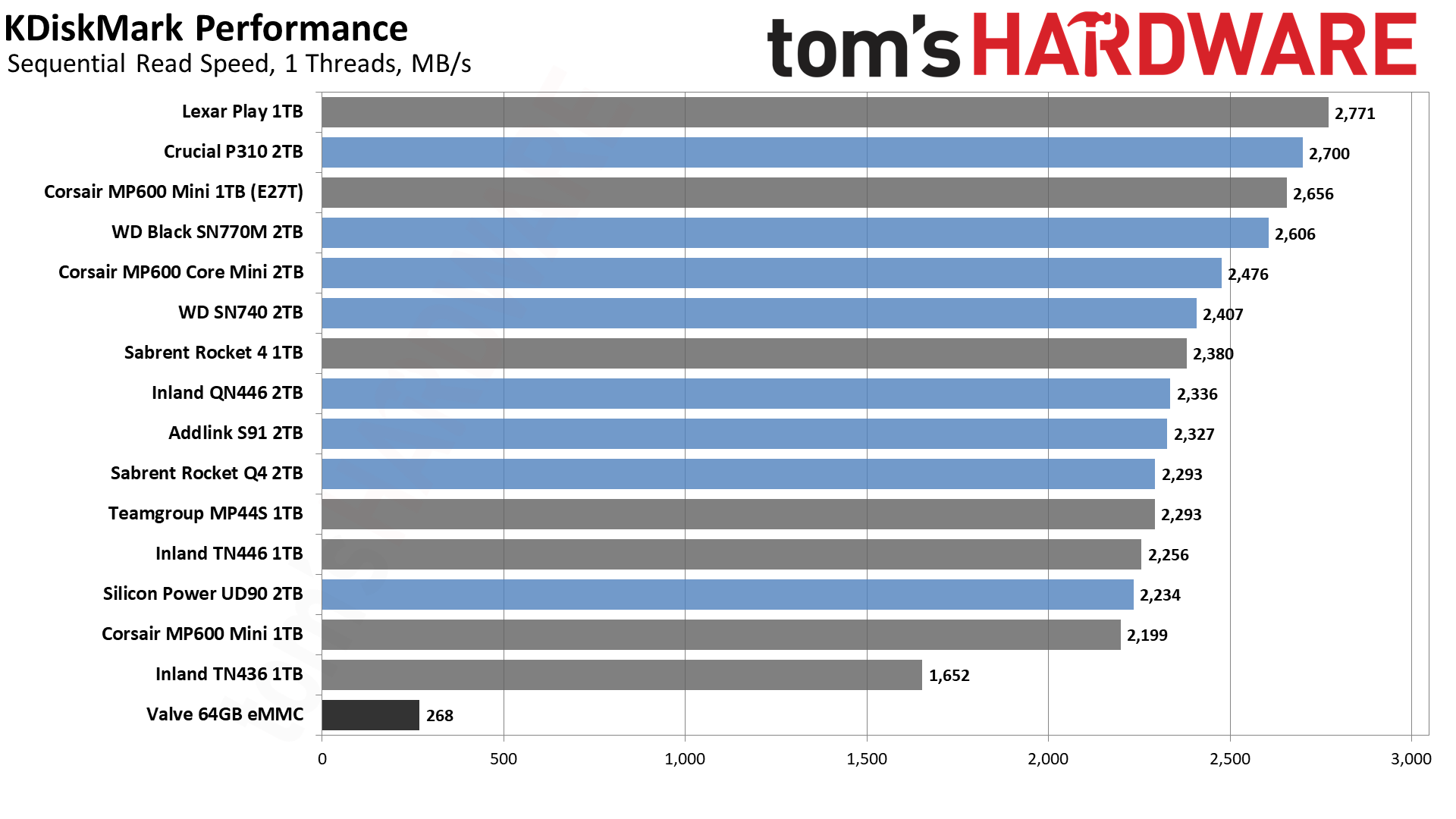
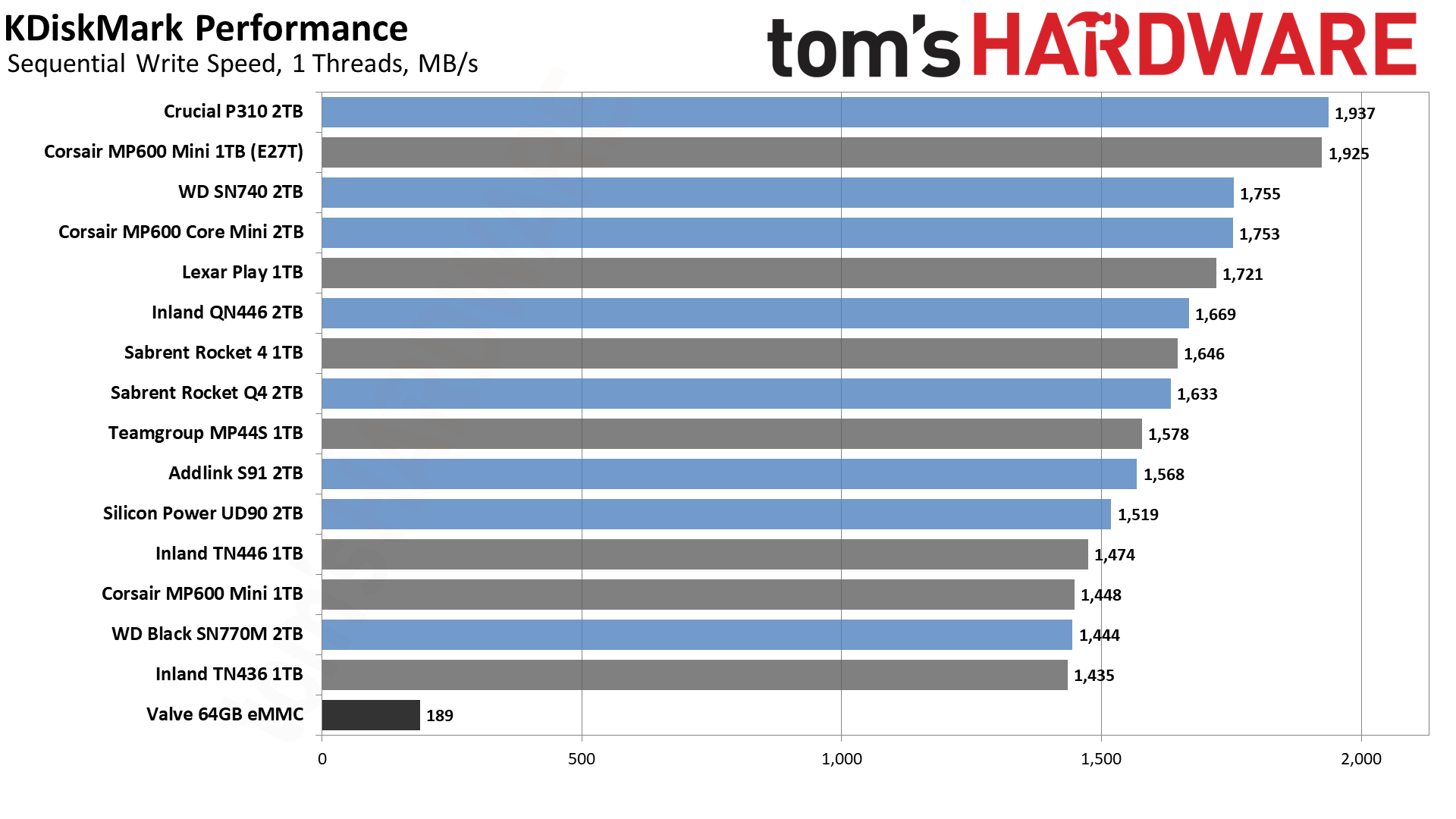
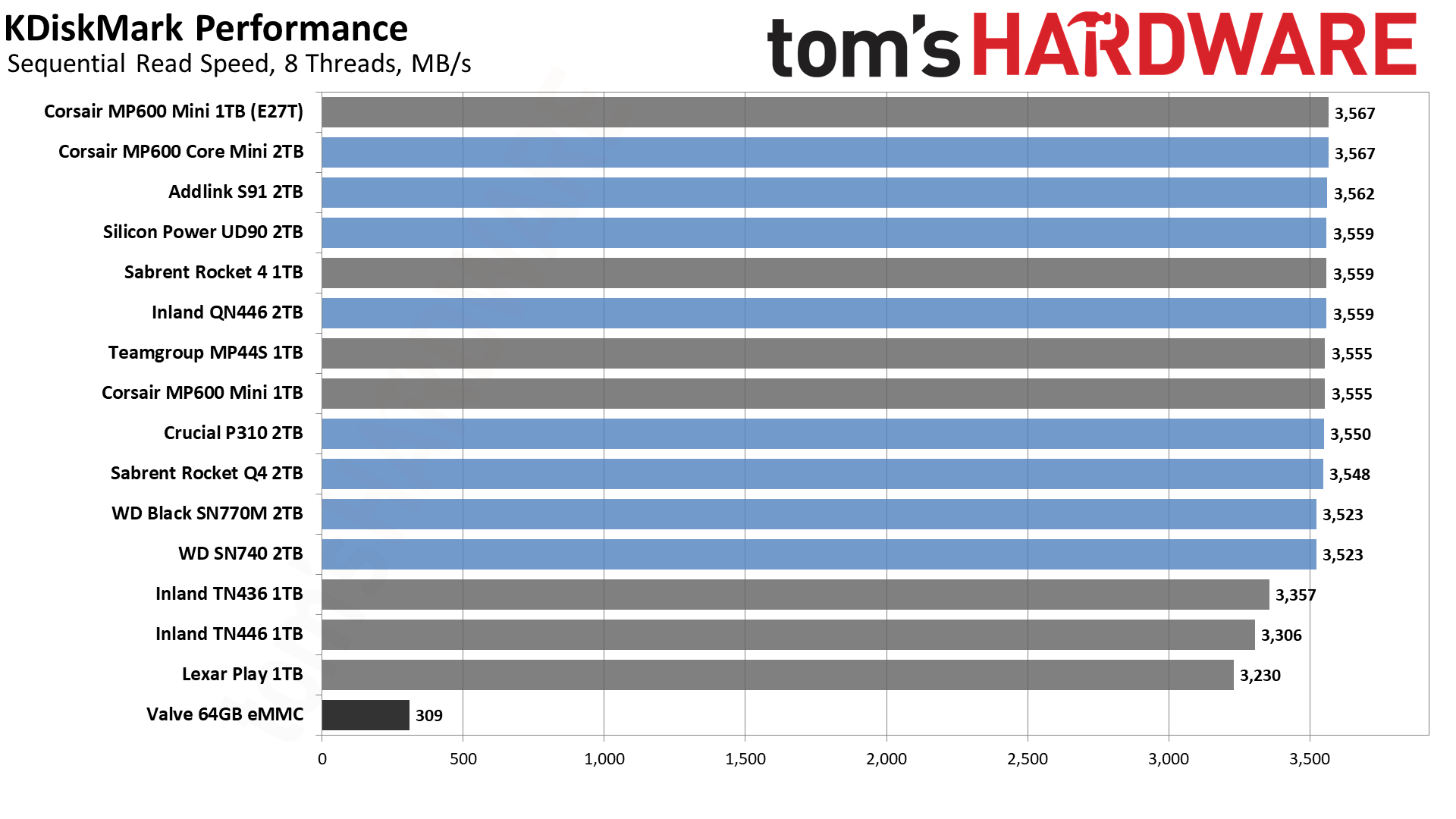
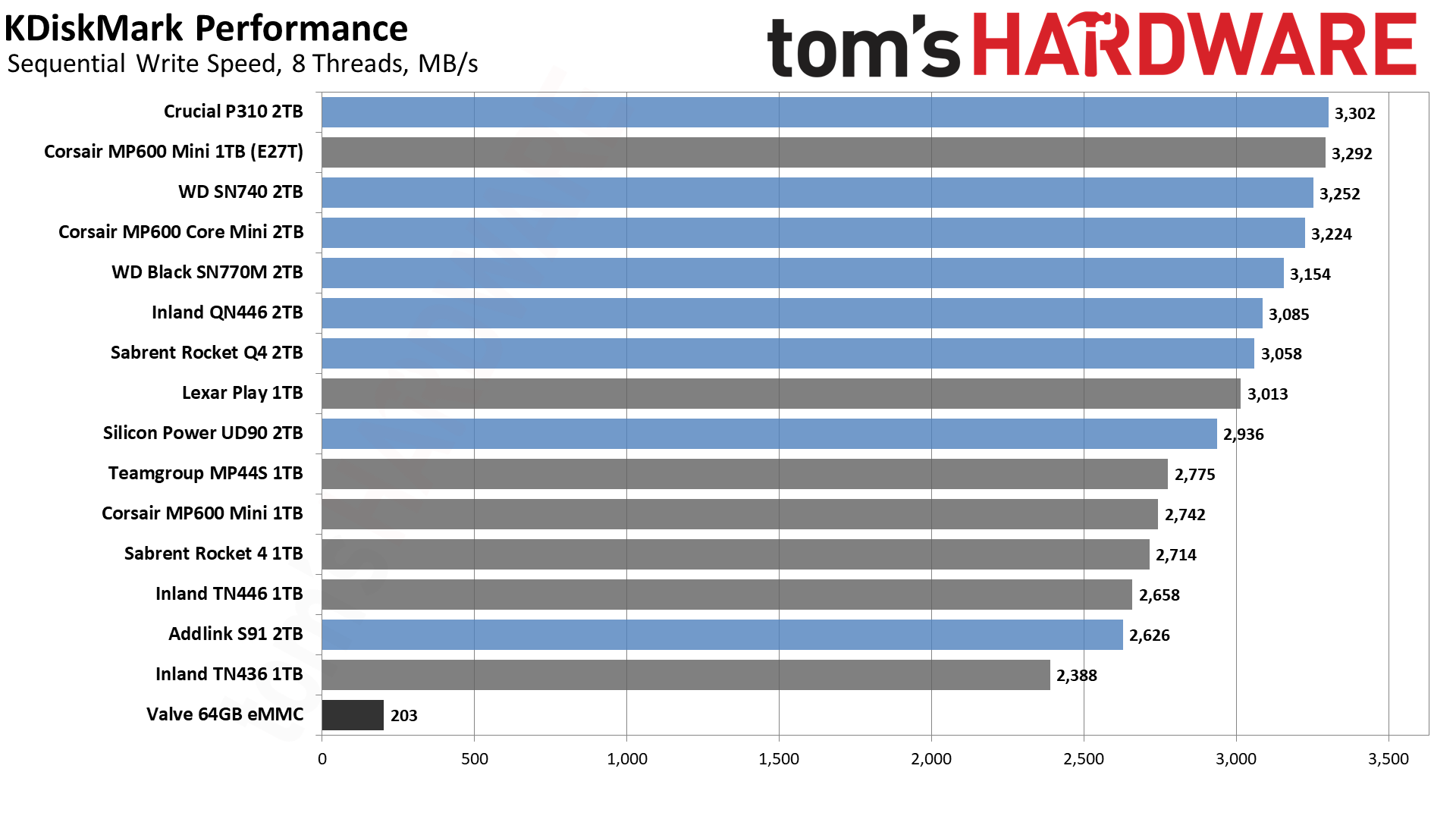
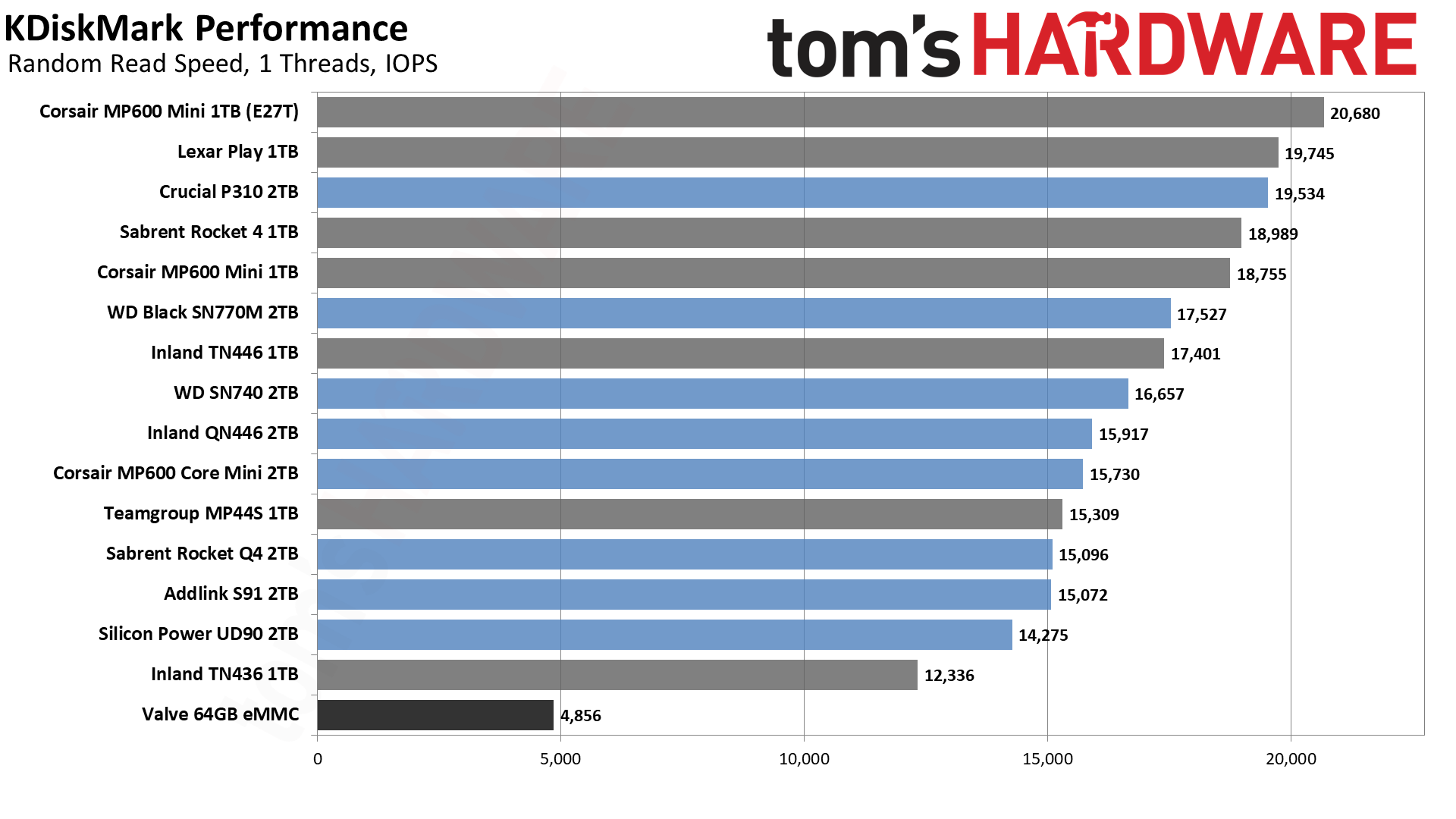
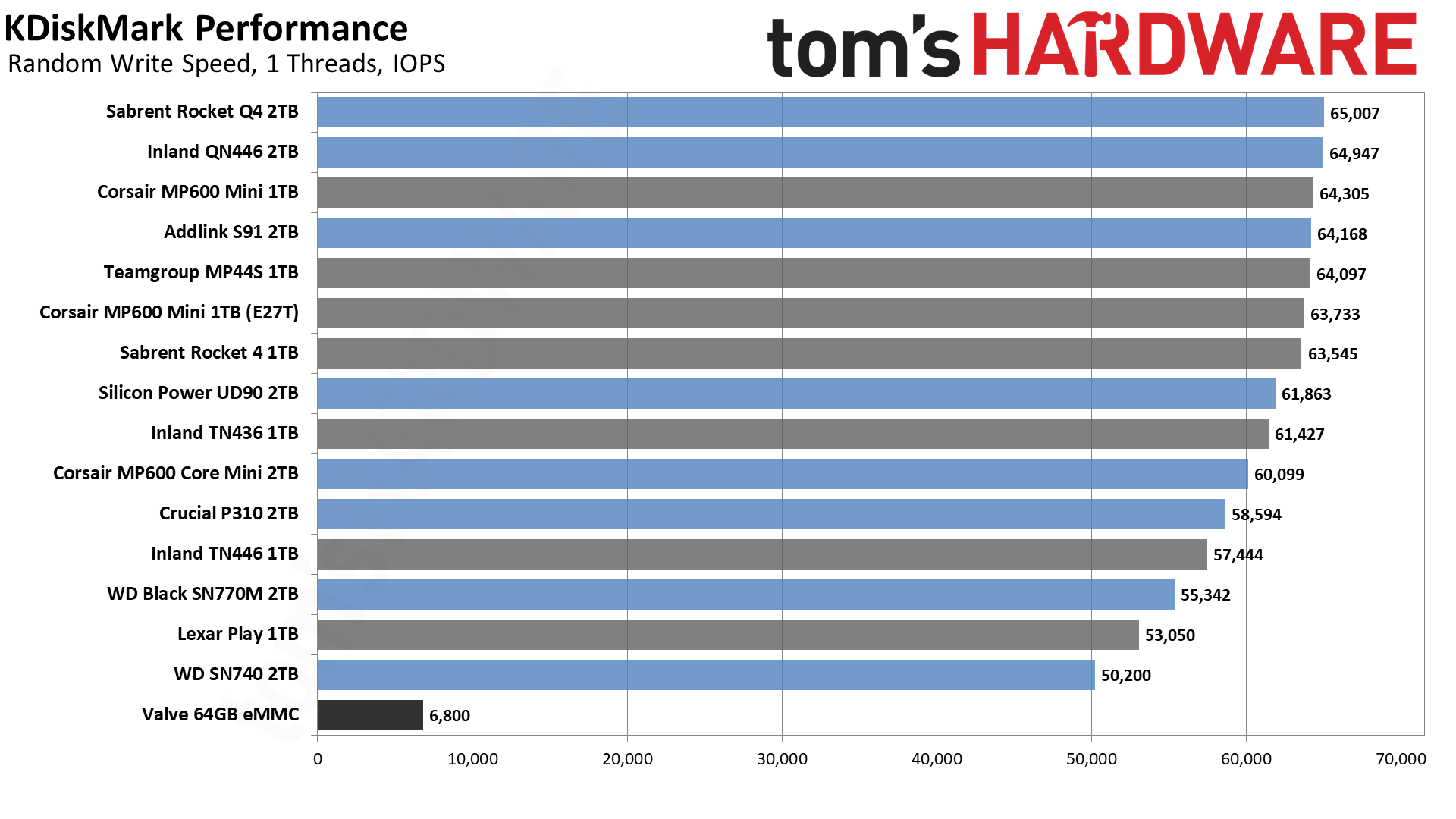
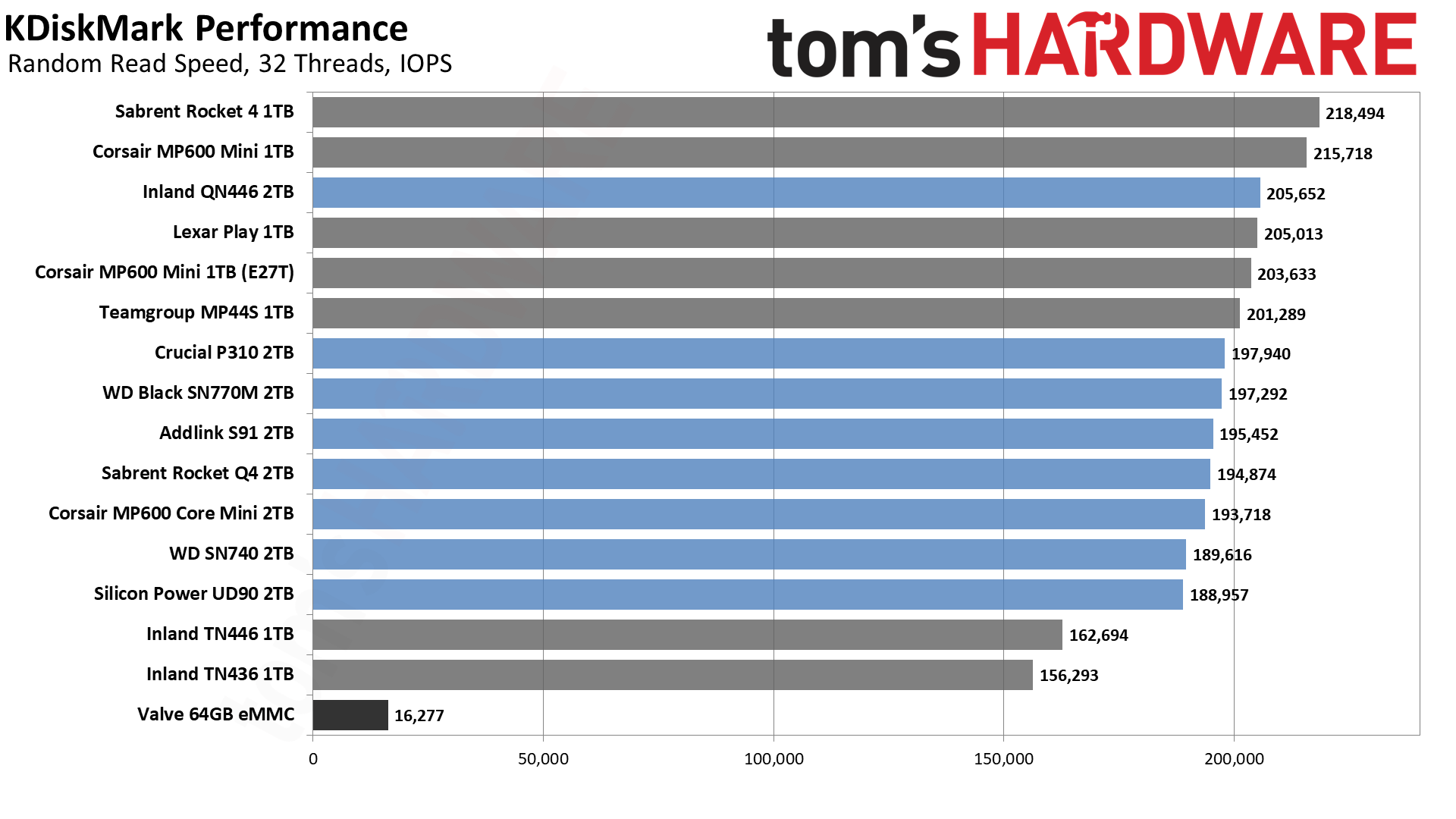
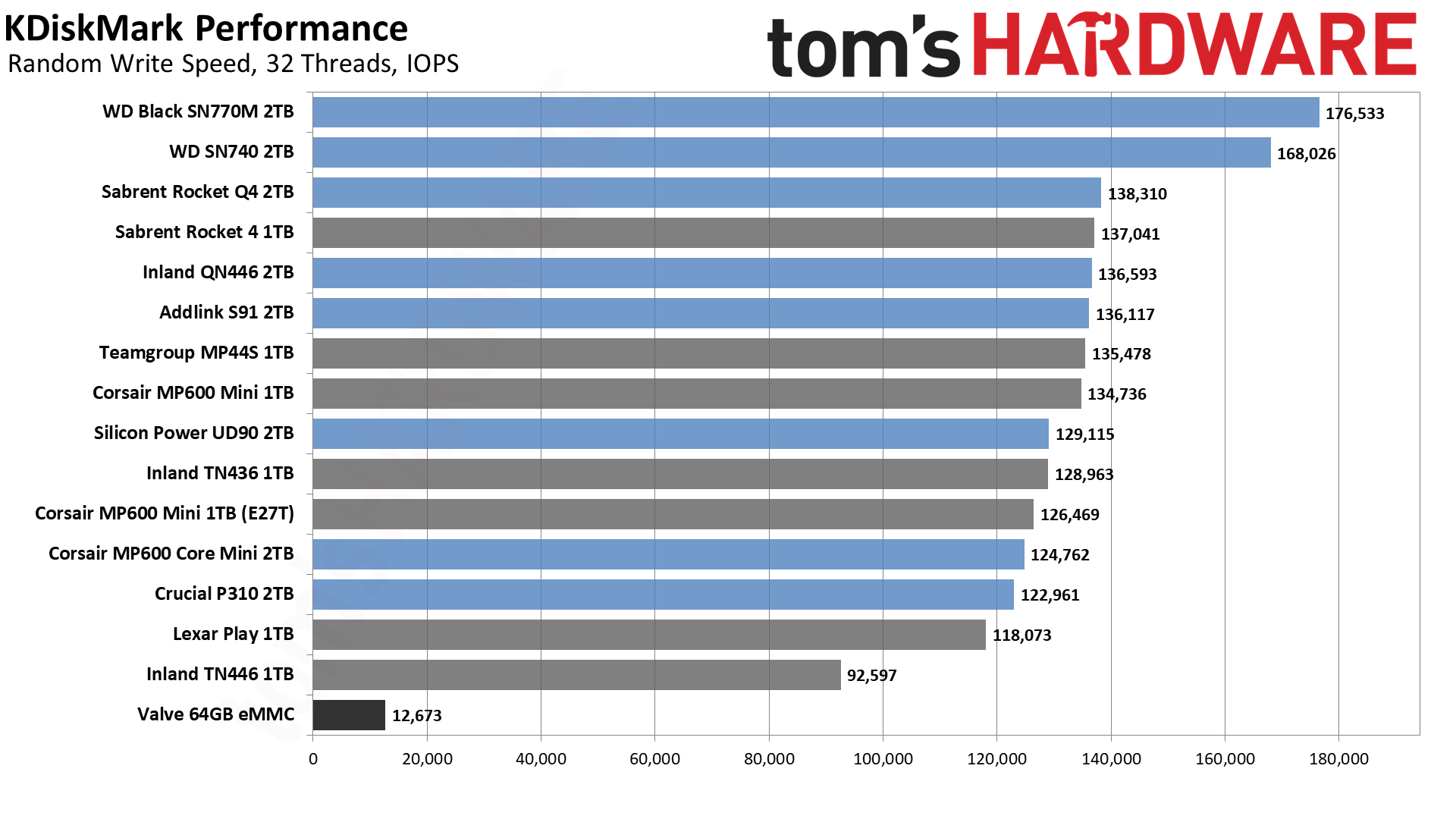
The KDiskMark results show far more variation among the drives, though again in practical use — i.e. playing games on the Steam Deck — most of the drives perform well enough that you likely won't notice the difference. The only exception to this is the 64GB eMMC drive, which consistently ranks at the bottom of our charts. That's not too surprising, since it's limited to an x2 PCIe 2.0 interface that tops out at 500 MB/s.
MORE: Best SSDs
MORE: Best Hard Drive
MORE: Best External SSDs
MORE: How We Test HDDs And SSDs
Get Tom's Hardware's best news and in-depth reviews, straight to your inbox.

Shane Downing is a Freelance Reviewer for Tom’s Hardware US, covering consumer storage hardware.
-
M1terE When you made the list on Dec 8 2023 did you also know that there is aReply
MP600 CORE MINI 2TB PCIe 4.0 (Gen4) x4 NVMe M.2 SSD -
EduAAA don't matter, the best is the cheapest... the apu is weak, you gonna be playing low perf required gamesReply -
vanquishsyb The best ssd money can buy is literally not available to purchase? Or am I not looking at the right places?Reply
